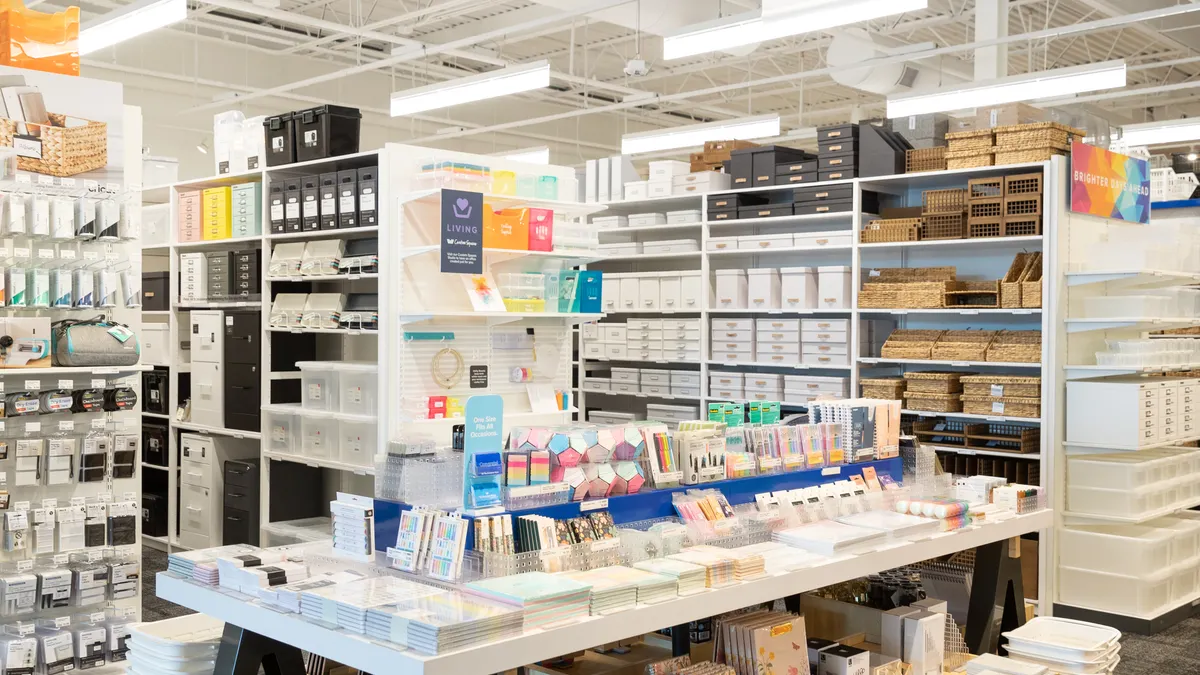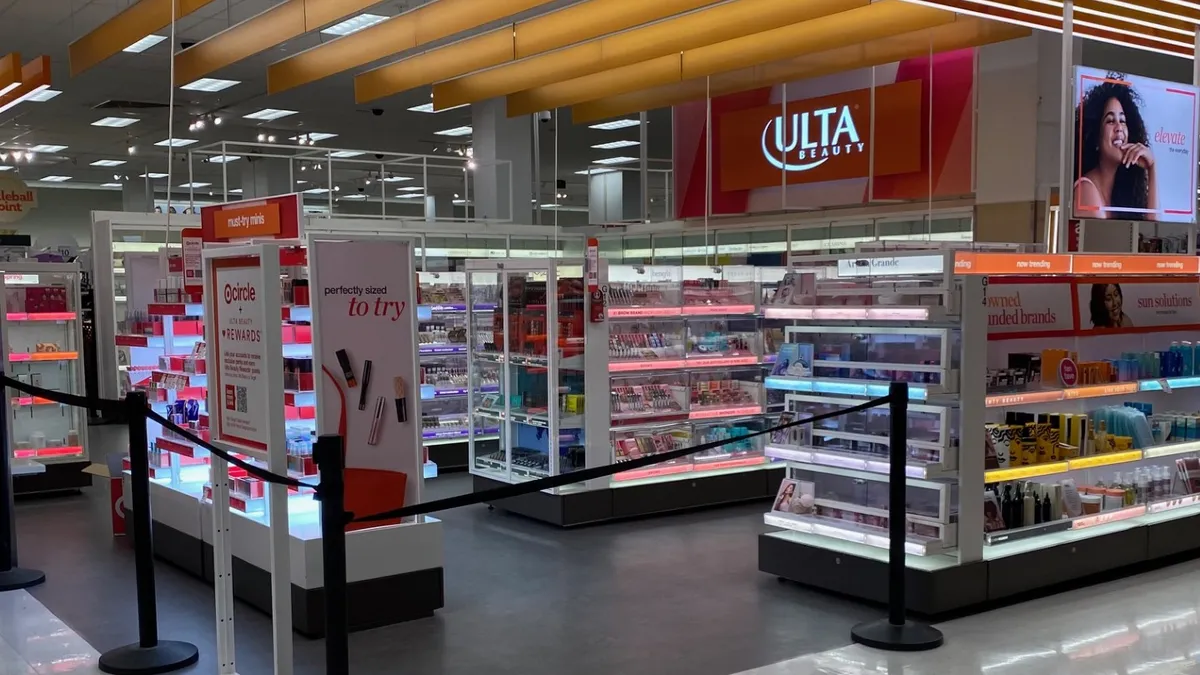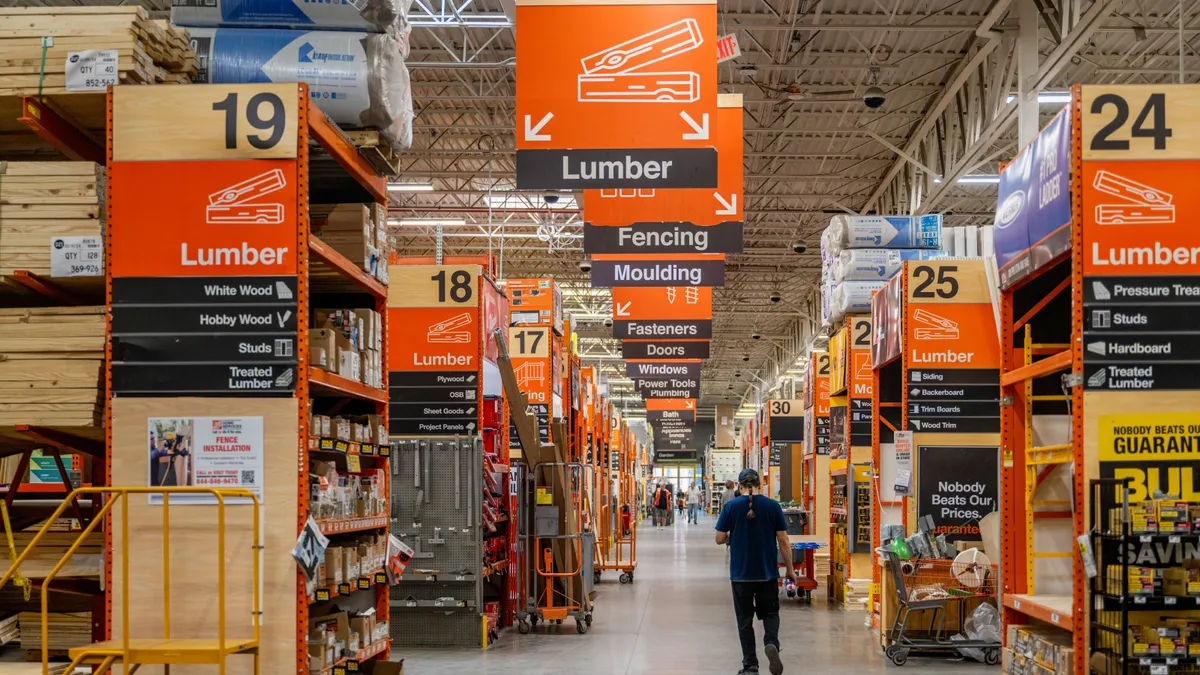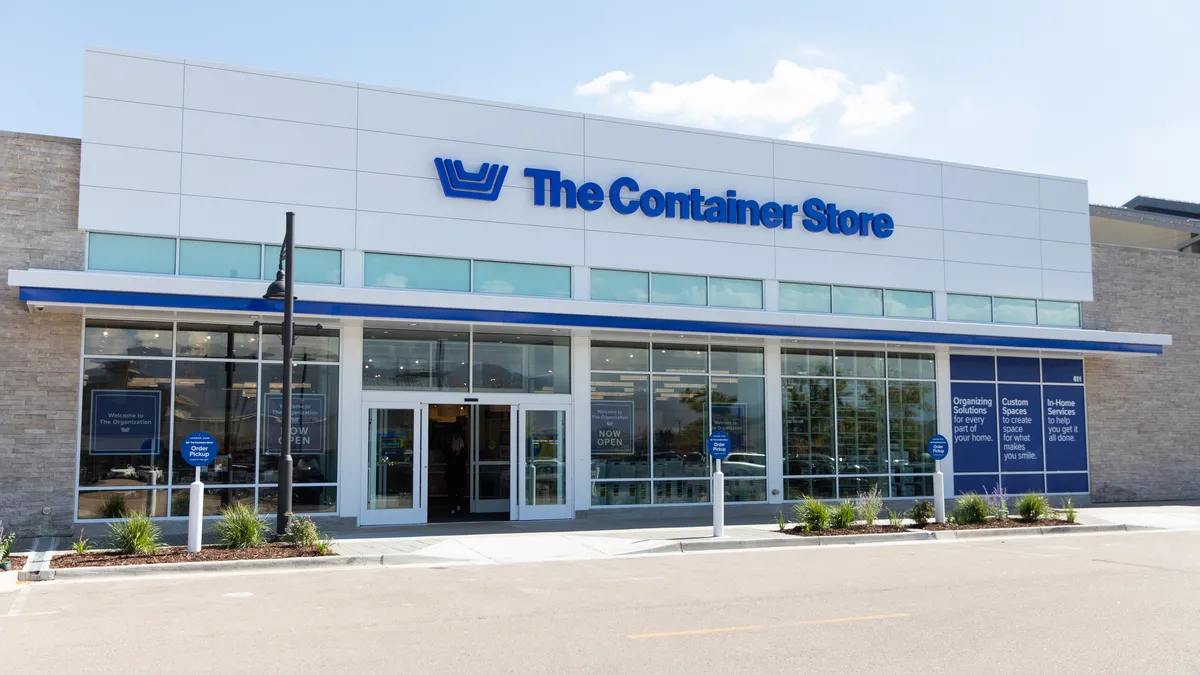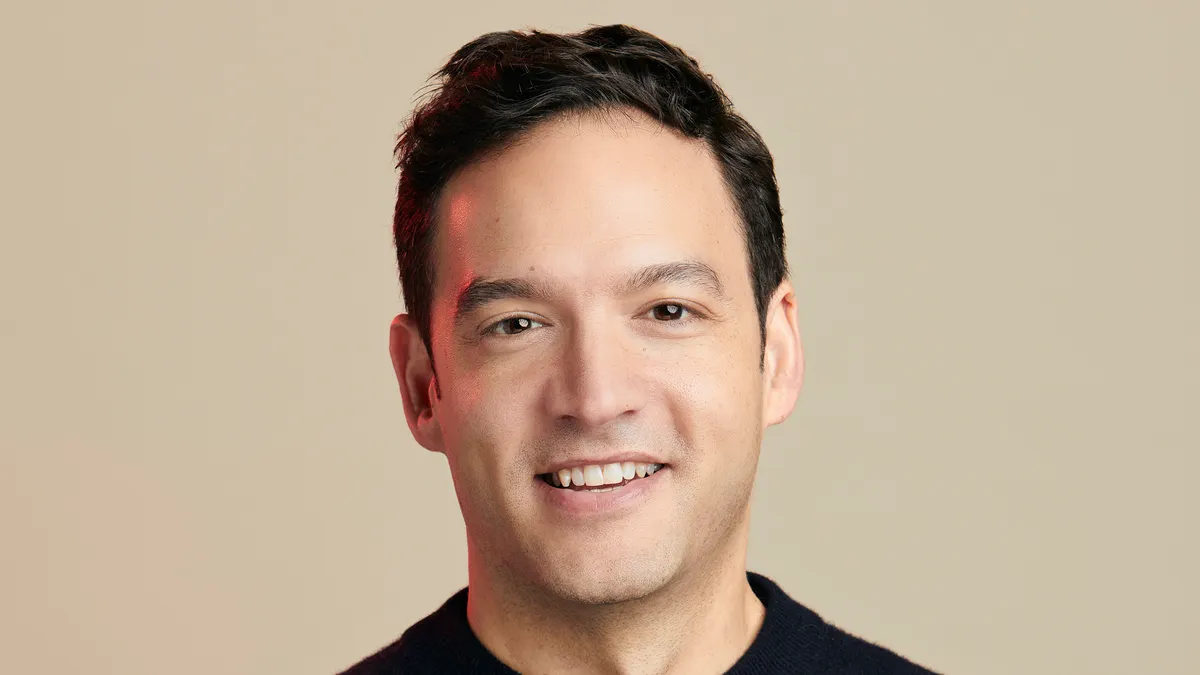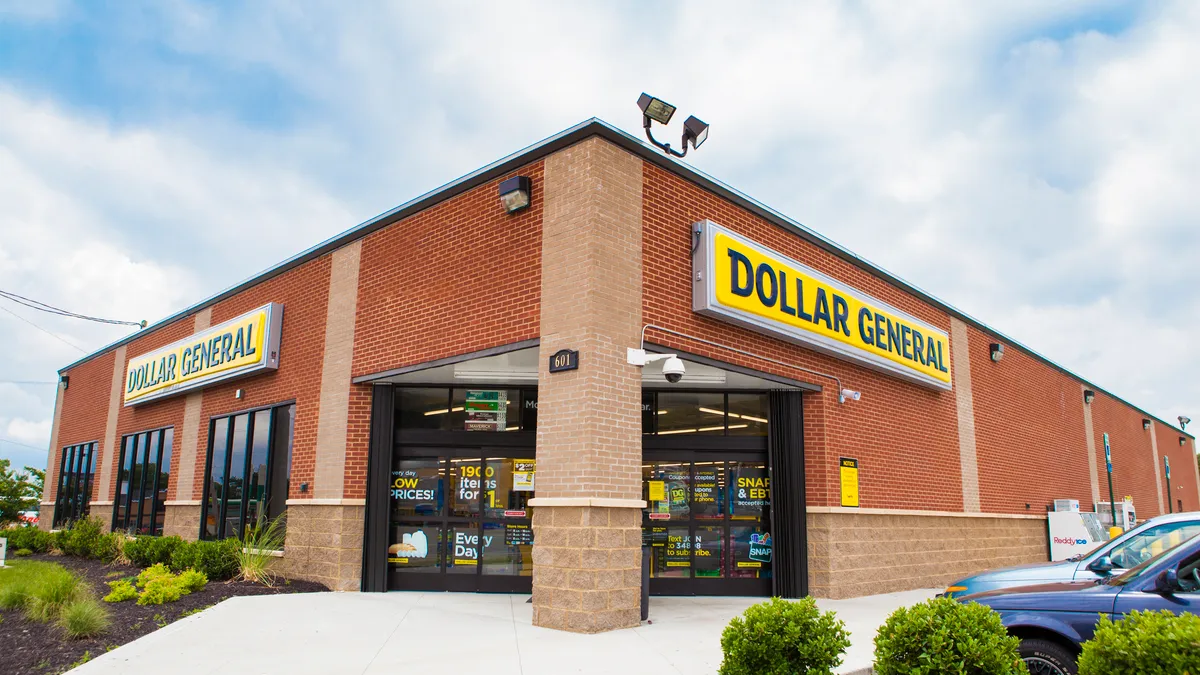There’s a new sheriff in town at The Container Store.
The retailer, which has struggled for years and emerged from bankruptcy in January, is “going through a complete review of our entire assortment and vendor base,” according to a July memo to vendors from Chief Commercial Officer Martin Schumacher. He made clear that the company is looking for price cuts.
“We know that we have been paying too much for virtually every product we buy,” he said in the memo, which was reviewed by Retail Dive and confirmed by the company.
The Container Store has a reputation for treating employees and suppliers well. A decade ago, co-founder and longtime CEO Kip Tindell literally wrote the book on the upside, titled “Uncontainable: How Passion, Commitment, and Conscious Capitalism Built a Business Where Everyone Thrives.”
But there has been a downside, according to a person familiar with the company, who asked not to be named because they are not authorized to speak to the media. The Container Store’s emphasis on having the nicest possible culture essentially meant that it was open season for suppliers, whom the person likened to pickpockets.
In his memo to vendors, Schumacher similarly implied that brands have been ripping off the buying team. As of March, Schumacher and Executive Chair Joel Bines serve on the retailer’s chief executive team. Per Schumacher’s memo, chief merchant Brooke Wagner left last month, and he has taken up those responsibilities.
“My advice to you is to take an objective look at your historical profit margin with us, recognize that for most of you we have many choices of where we source similar products, accept that your margin was artificially high because of a lack of strategic sourcing skills on our side, and understand that those days are over,” Schumacher said.
The tone and substance of the note took many vendors aback — especially those who have worked with the retailer for decades. Through the years, negotiations with The Container Store have been tough but based on win-win outcomes, and have largely resembled dealings with other major retailers, several vendors told Retail Dive. More than one brand said that, if anything, they have been more willing to slash margins or create exclusives for The Container Store than for other retailers, thanks to its loyal customer base and a high level of trust.
“The reason I was so offended personally is because the legacy of Container Store could not be further from the way they spoke to us as brands in that memo,” said one vendor. “The idea that up until now, Container Store buyers were sitting on their hands and just letting us price gouge them is so ridiculous.”
More than a dozen vendors spoke to Retail Dive by email and phone, most on condition of anonymity. They didn’t find all aspects of Schumacher’s note objectionable, as when he said the assortment and supplier roster would be culled because they “have become fragmented and drifted from our core customer promise.” While it’s disappointing to be dropped or to have purchase orders cut back, that’s part of the business, several vendors said.
They also expect to have to negotiate with retailers, though not all are up to date on vendors’ growing costs. Expenses related to compliance tasks like routing guidelines, electronic data interchange connections and RFID labeling, for example, are increasingly falling to vendors and should be factored into pricing, according to Teodor Hjelmqvist, chief operating officer at Printworks, a Swedish brand that specializes in games, books and other “functional decor.”
“If those requirements aren’t met, the brand can face heavy chargebacks — sometimes large enough to wipe out the entire profit margin,” Hjelmqvist said by email. “The Container Store isn’t the toughest retailer we deal with, but they still require processing and have significant chargebacks. So while negotiation is standard practice, the growing operational demands on brands must be part of the discussion.”
Some brands said they worry Schumacher’s communication indicates that The Container Store’s new teams are inexperienced or the company is still in financial straits, or both.
“I don't think they carry a big enough stick right now in terms of their velocity and their volume to treat people that badly and expect people to cut their prices in half,” one vendor said. “It feels like a desperation move, and they're focusing on the wrong things.”
It’s early days for the turnaround. In the new year the company emerged from Chapter 11 with nearly $88 million less in debt. This spring, after installing its new executive team, the company laid off about 70 people in its corporate workforce and paused capital projects. The person close to the company said this week that the retailer is having constructive discussions with nearly its entire supply base and is doing great.
However, the half-century old Container Store may be behind the times with regard to the “conscious capitalism” its founders once championed.
“The era when large retail complexes could dictate terms unilaterally, as we saw for many years with players like Bed Bath & Beyond, Kohl’s, Walmart and others, is largely over,” one vendor said. “Many of today’s larger retailers now approach vendor relationships as genuine partnerships with the understanding that both sides must succeed for the relationship to thrive.”



